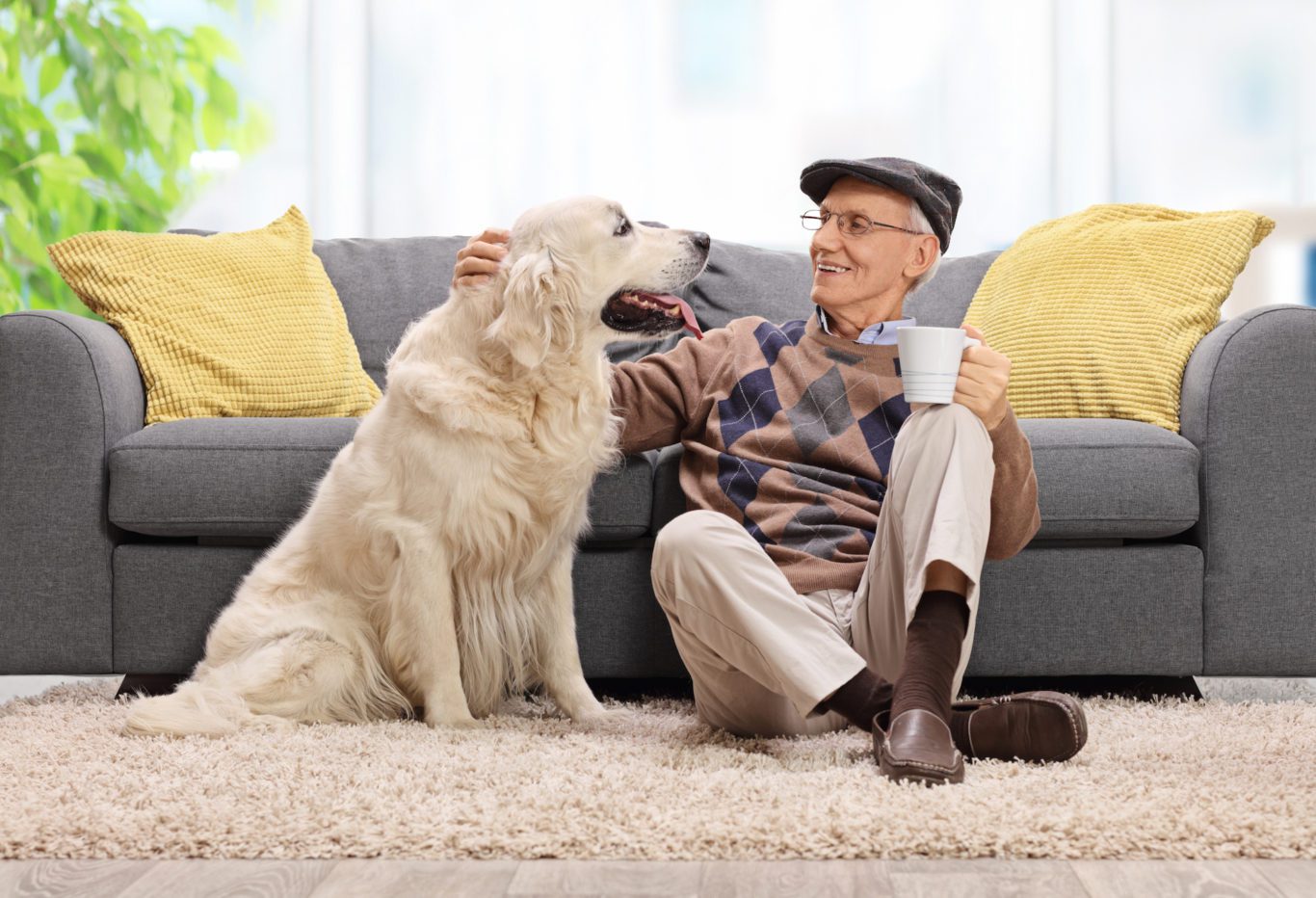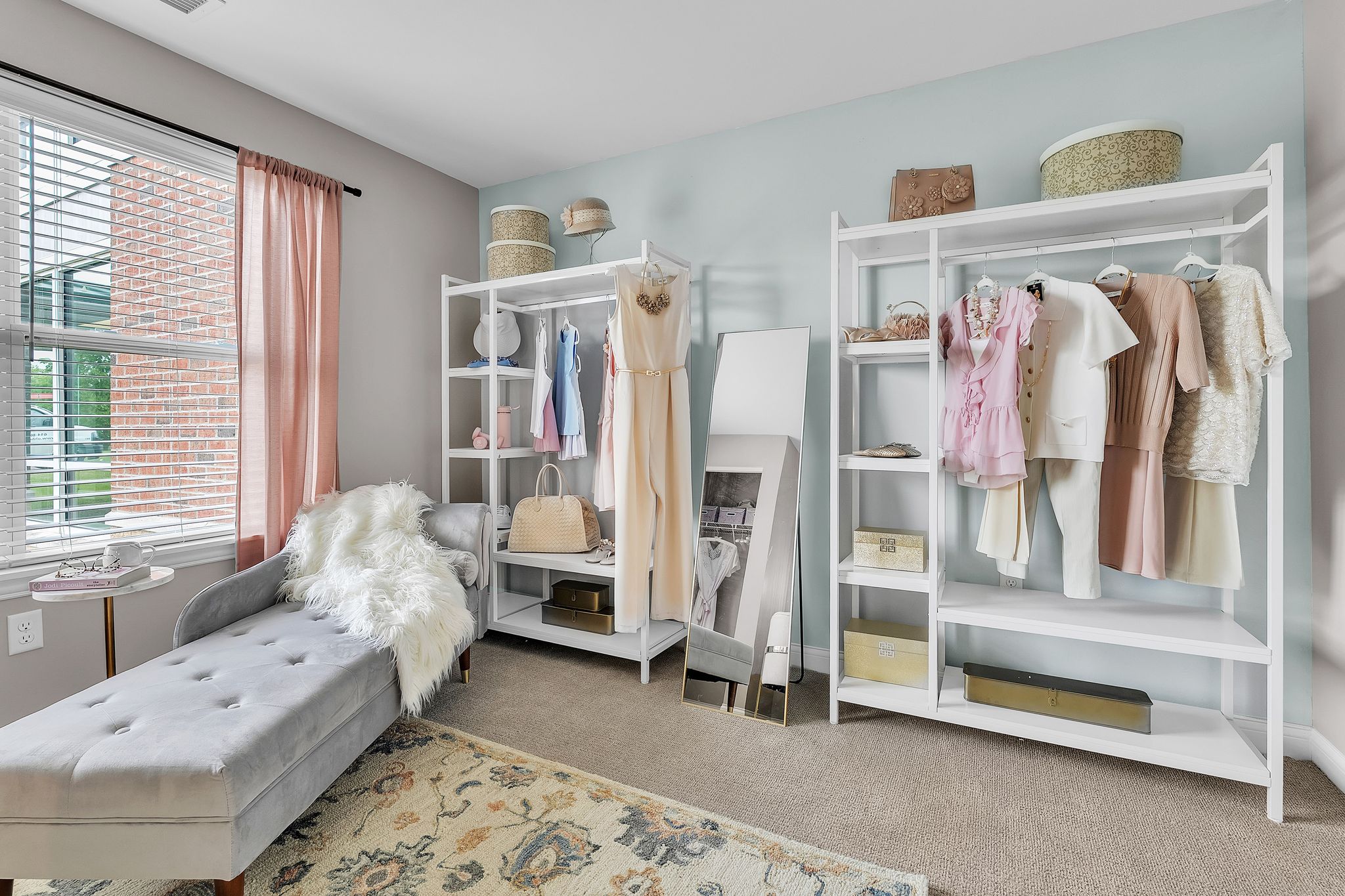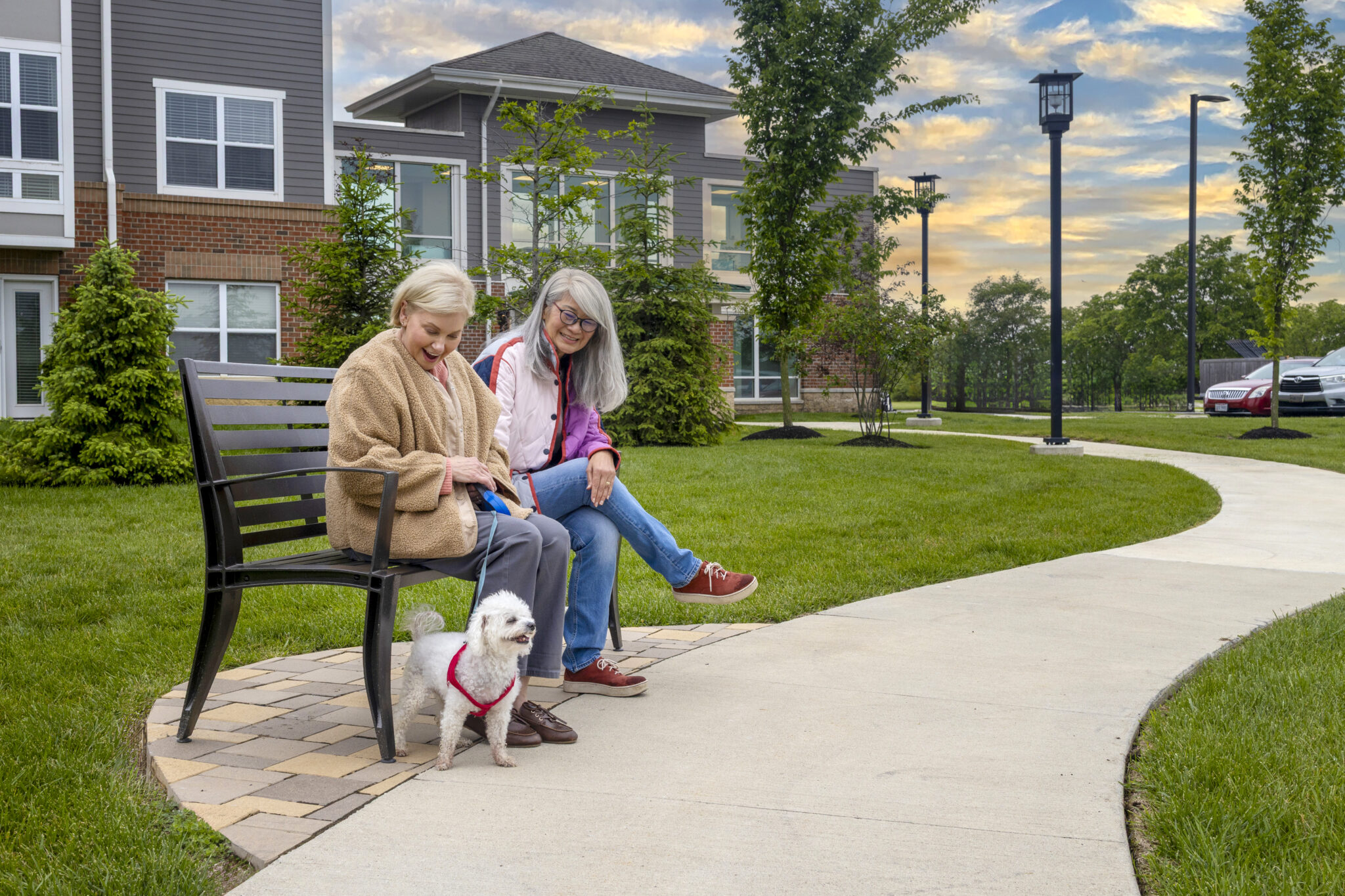Pet ownership is a fulfilling, rewarding, and all-around fun experience that can improve just about anyone’s quality of life. However, for seniors entering or living in a retirement community, having an animal companion can be highly beneficial for physical and mental health. Depending on the type of pet, being responsible for regular walks out in nature, grooming, and feeding can help give owners a sense of purpose and a defined schedule and daily physical exercise.
Like people, different types of animals present different personalities, needs, and challenges. Some seniors prefer a smaller pet that doesn’t need too much attentive care, such as a rabbit, bird, or cat. All of these companion pet options and others can fill the role amazingly, providing comfort and company to seniors in pet-friendly retirement living situations.
Deciding Which Companion Pet Is Best for You
Smaller animals like birds, cats, and rabbits can be wonderful pets for seniors, in addition to being relatively low maintenance. However, many retirees desire the unique companionship and loyalty that only a dog can provide.
Many different breeds of dogs offer different personality traits, physical attributes, and lifespan ranges. That means that just about any potential dog owner willing to put in the time and attention can find the perfect companion pet for them.
Many 55+ communities even encourage companion pet ownership for their residents for the very reasons we mentioned. The key to successfully owning pets for seniors in a pet-friendly retirement living space is choosing the right companion that fits your preferences and lifestyle as well as the capabilities of your community.
Not sure where to start looking for the best dogs for retirees? Before you begin choosing the perfect companion pet, there are a few factors that you need to consider first.
Dog Size
Though dog ownership of any breed can be fulfilling and exciting, it’s important to keep in mind that the experience of caring for a small, medium, or large dog can vary in many ways. Not only do different sized dogs often exhibit different personalities and behavior traits, but the experience of caring for them on a day-to-day basis can be dissimilar.
Small to medium dogs are much easier to control physically, whether on a leash or frolicking around your home or yard. Therefore, you won’t have to worry about your dog pulling too hard on their leash or accidentally knocking over someone they jump up to greet. Additionally, smaller dogs can be washed in the sink with ease if you prefer to do your grooming.
If you prioritize good training with a larger companion pet, you won’t have to worry about the issues of size and strength that some dog owners run into. Plus, it’s important to note that proper training is crucial for a positive pet/owner relationship, no matter the size of your dog.
Energy/Exercise Needs
Different breeds of dogs are known to have different energy levels throughout the day and different exercise needs. Though the need for regular exercise can often increase depending on the dog’s size, this isn’t a hard and fast rule. In fact, many larger breeds are content with a daily walk, and many small to medium breeds prefer more regular exercise movement.
The best dogs for seniors tend not to need too much exercise unless you already include activities like long walks, runs, or hikes in your daily life. If you have any issues with physical mobility or stamina, you may want to consider a companion pet that is content to lie by your side most of the day and won’t be restless.
Puppies or Older Dogs
Generally, when people picture the process of getting a dog, they imagine taking home a puppy. However, keeping in mind the level of energy that puppies tend to have, they may not make the best dogs for retirees who lead a generally less active lifestyle or have physical restrictions. Plus, puppies require almost round-the-clock attention and training for the first several months to break them out of developing bad habits, which can be simply exhausting.
Also, it’s important to consider the life expectancy of any dog you’re considering adopting. That is why older dogs tend to make better companion pets for seniors. Even dogs that are just a few years out of puppyhood will be much more relaxed, making them better-suited companions for someone who resides in pet-friendly retirement living.
Grooming Needs
Depending on the coarseness and thickness of their fur, different dog breeds will need varying levels of grooming. Some only require a bit of brushing and a bath every so often, while others need a regular hair trim and frequent bathing and nail clipping. There are some hypoallergenic breeds that don’t shed any fur at all, such as the Bichon Frise and the Miniature Schnauzer. On the contrary, some dogs shed a lot during warm months or get rid of old, damaged fur. However, these dogs don’t shed in other months. And then there are breeds that shed consistently throughout the year, like Alaskan Huskies and Labrador Retrievers.
When considering the grooming habits of your companion pet, it’s essential to gauge how much you’re willing to take on realistically. Some of the best dogs for seniors in terms of temperament and energy levels are mild to heavy shedders, so many dog owners make the sacrifice of committing to near-daily brushings for the sake of a great companion. It all comes down to your physical capabilities regarding grooming tasks and what new tasks you can honestly commit to day in and day out.
Personality and Temperament
A mixture of nature and nurture determines how your dog will turn out temperamentally and personality-wise. Some breeds are genetically predisposed to a gentle or aggressive nature, but this doesn’t mean that disposition and personality can be accurately predicted at birth or before birth. Any dog can develop a sweet, affectionate demeanor when given the proper love and training.
Since folks in their golden years may not have the time and energy to work a more difficult-to-train dog out of their bad habits, the best dogs for retirees tend to be those that already tend to have a pleasant nature, such as retrievers, beagles, and poodles. However, you can’t rely on a dog’s genetics entirely, and proper training and care for your companion pet are still important to get the most out of your relationship.
Best Dogs for Seniors
Though you may have some specifications in mind for your perfect pet companion, it’s normal to be still unsure about what type of dog to bring into your pet-friendly retirement living situation. Here are some of the most common breeds you’ll find in 55-and-over communities and some of the reasons why they tend to be the best pets for seniors.
Pembroke Welsh Corgi
Pembroke Welsh corgis are best known as Queen Elizabeth II’s favorite dog breed to keep in the palace. These dogs are recognizable by their short legs and stout bodies, and they typically weigh around 30 pounds, ranking them on the smaller side of medium for companion pets.
Originally, corgis were bred to herd cattle, which means they love getting outside and moving around. It also means they are very vocal with their owners.
If you lead an active lifestyle and can commit to frequent walks, a corgi will be your most loyal friend and an effective guardian of your home. Just be aware that, since they are vocal and excellent guard dogs, they tend to bark regularly.
Poodle
There’s a reason dog shows feature many poodles; the breed is highly intelligent and very trainable, making them some of the best dogs for seniors who prefer a larger breed in any pet-friendly retirement living. Though most poodles are on the larger side, they also come in multiple sizes—miniature, toy, and standard.
Poodles usually have a sweet and gentle nature. Besides a daily walk, they don’t need too much exercise and enjoy keeping their master company on the couch. Plus, poodles don’t shed, making them easier to pick up after seniors with limited mobility.
Beagle
The beagle is a friendly and energetic dog that can make an excellent companion pet for seniors who enjoy frequent exercise. If you’re looking for a companion pet that’s sociable and enjoys meeting new people, a beagle could be a great fit.
Beagles also make great guardians of the home due to their breeding as hunting dogs. However, these scent-driven dogs tend to follow any smell that catches their interest, so it’s best to have a long leash when you take them for their frequent walks.
Maltese
Maltese are the classic lap dogs at eight pounds on average, making them the best dogs for seniors who want a companion pet but don’t feel equipped to care for a larger dog.
Maltese are very attuned to their master’s mood, which is why they’re often trained and used as therapy animals. They tend to be gentle and playful, don’t shed, and don’t need too much exercise, though they require a weekly bath and daily brushing.
Find Pet-Friendly Retirement Living on Your Terms with True Connection Communities
To enhance the experience of owning a companion pet in your active retirement, you must find the right pet-friendly retirement living. True Connection Communities are based on the principles of connection and community, and we believe that our furry friends are a crucial part of our mission. Find a community near you and get started with your best retirement today.





